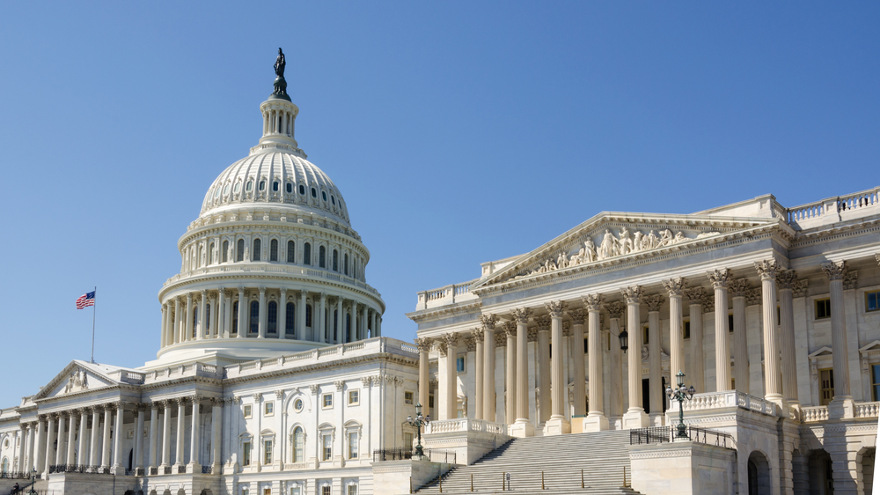ACA International fears House bill targeting robocalls would limit legitimate collections activities

By subscribing, you agree to receive communications from Auto Remarketing and our partners in accordance with our Privacy Policy. We may share your information with select partners and sponsors who may contact you about their products and services. You may unsubscribe at any time.
MINNEAPOLIS and WASHINGTON, D.C. –
ACA International questioned a proposal to regulate telephone communications from the U.S. House Energy and Commerce Committee chairman based on the assertion it could do more harm than good.
The organization that brings together third-party collection agencies, law firms, asset buying companies, creditors and vendor affiliates explained the potential House legislation would sweep illegal robocalls and legitimate non-telemarketing business calls into one category.
The Stopping Bad Robocalls Act (HR 946) was reintroduced back in February by Rep. Frank Pallone Jr., a Democrat from New Jersey.
According to a news release from the lawmaker, Pallone’s bill would direct the Federal Communications Commission to enact “strong” consumer protections for authorized calls and empower the FCC with strong enforcement tools to reign in robocallers.
The committee chairman said the legislation would also ensure that consumers have the ability to stop calls they’d previously authorized and require incoming calls to have authentic caller identification information before they are delivered to customers.
“Americans are fed up with robocalls. It is incredibly annoying to repeatedly get unwanted calls from people you don’t know and don’t want to talk to,” Pallone said. “Despite previous efforts like the Do Not Call Registry, robocalls are still on the rise. The Stopping Bad Robocalls Act will equip consumer protection agencies with innovative, new tools designed to stop the abusive practices by robocallers and better restrict unauthorized robocalls.”
Subscribe to Auto Remarketing to stay informed and stay ahead.
By subscribing, you agree to receive communications from Auto Remarketing and our partners in accordance with our Privacy Policy. We may share your information with select partners and sponsors who may contact you about their products and services. You may unsubscribe at any time.
ACA International insisted the measure would harm consumers by stymieing the free flow of information between thousands of legitimate businesses and consumers, emphasizing concerns that Pallone’s legislation presents an overly broad characterization of what is considered a robocall including a problematic expanded definition of what is considered an autodialer.
“If the Stopping Bad Robocalls Act was appropriately tailored to focus on bad actors that are making abusive and illegal robocalls, we would be in staunch support of such efforts,” ACA International chief executive officer Mark Neeb said in a news release.
“ACA members strongly agree that consumers deserve to be treated fairly and respectfully,” Neeb said. “However, the Stopping Bad Robocalls Act is not tailored to that goal and it instead does more harm than good by creating additional confusion, in an already confusing marketplace for determining how to comply with the severely outdated Telephone Consumer Protection Act (TCPA) of 1991.”
The latest online information available from the House’s official website indicated HR 946 remains within the House Energy and Commerce Committee.
“When Congress enacted the TCPA, it was for the purpose of limiting abusive telemarketing calls, yet Rep. Pallone’s legislation would mark an even further departure from that original laudable goal of stopping sales calls that consumers have not consented to receive, while doing nothing to deter illegal robocallers who have no interest in following the law,” Neeb said.
“Consumers often need the communications that legitimate businesses provide them and creating new onerous requirements for communicating with them is harmful,” he said.
The Stopping Bad Robocalls Act includes these potential actions:
— Amending the Telephone Consumer Protection Act (TCPA) to ensure that the FCC has the authority and the tools to take strong, quick action when they track down robocallers
— Allowing consumers to revoke consent they had previously given to receive calls at any time and in any reasonable manner
— Codifying a reassigned number database to put robocallers on notice when a telephone number they may have previously been authorized to call has been given to a new customer who has not authorized their call
— Limiting the number of robocalls exempted from the TCPA under the FCC’s rules
— Requiring calls to have verified caller identification information associated with a call before the call can be put through
— Extending the statute of limitations from one year to four years for callers violating robocall prohibitions
Pallone said an estimated 26.3 billion unwanted calls were placed in the U.S. last year, representing a 46-percent increase in unwanted calls over the previous year. What the lawmaker called a “staggering number of unwanted calls” are returning huge profit margins for robocallers, according to the House member, with every dollar spent by robocallers returning as much as $20 profit — a 2,000 percent profit margin.
Though Pallone acknowledged some robocalls are initiated by legitimate companies, the lawmaker added robocalls are also used by scammers to steal from consumers, with more than 22 million Americans losing a total of $9.5 billion in robocall scams in 2016 alone, according to his office.
Pallone’s proposal also was applauded by various consumer groups.
“The Stopping Bad Robocalls Act will apply essential and meaningful consumer protections from unwanted robocalls if the FCC should fail to rein in robocalls from telemarketers and debt collectors, student loan servicers and others,” said Margot Saunders, senior counsel at the National Consumer Law Center.
Consumer Reports policy analyst Maureen Mahoney added, “The robocalls problem is out of control and, without action from Congress, will only get worse. This legislation would tackle the growing problem of ‘spoofed’ calls that trick consumers into answering, by ensuring phone companies implement technology to stop these unwanted calls before they reach the consumer at no additional cost.
“Consumer Reports applauds Congressman Pallone for his leadership in addressing this growing problem,” Mahoney said.


